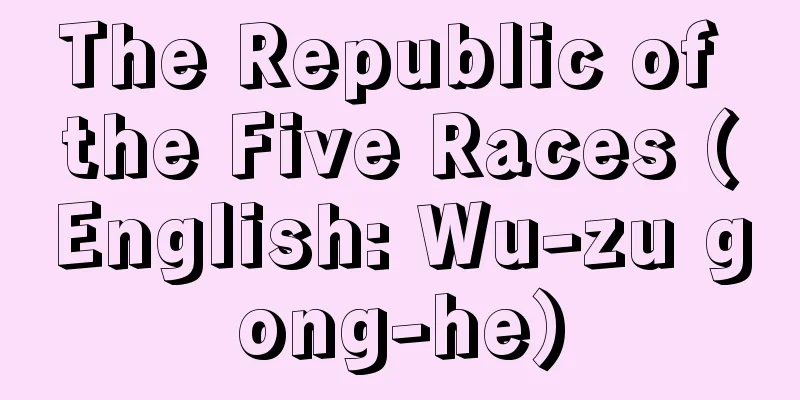Insider trading - insaida-torihiki (English spelling) insider trading

|
In securities market transactions, unfair trading of stocks is carried out by taking advantage of a position that gives access to important, undisclosed internal information. It is also called insider trading. Stock prices in the securities market are determined by transactions between participants based on homogeneous information that is publicly available. However, those who have direct access to confidential company information, and company executives (directors, auditors) who have many opportunities to do so, can easily make profits by taking advantage of their positions, and general investors who do not have access to such important company information can easily suffer losses. Important information about public companies should be fair to everyone, and it is unfair and a kind of fraudulent behavior for only those who have access to the information to make profits. While the legal restrictions on insider trading in the United States are extremely strict, in Japan, the Tateho Chemical Industry incident in 1987 led to amendments to the Securities and Exchange Act in 1988 to strengthen restrictions on insider trading, and insider trading was prohibited with the establishment of criminal penalties. In addition to legal restrictions on insider trading, stock exchanges and securities organizations have also established voluntary restrictions, with exchanges mandating the disclosure of information through timely disclosure and securities organizations imposing obligations such as restrictions on the use of information that securities workers learn in the course of their work. [Atsushi Oketa] Legal reformIn the 1994 amendment to the Securities and Exchange Law, restrictions on insider trading were strengthened in response to the relaxation of restrictions on the acquisition of treasury stock in the Commercial Code, and penalties were strengthened in the 1997 amendment to the law. In 2007, the Securities and Exchange Law was amended to form the Financial Instruments and Exchange Law, which now regulates insider trading (Articles 166 and 167), and accordingly, penalties have been strengthened to prevent unfair trading. However, monetary penalties will continue to be levied as before. [Maeda Takuo] [Reference] | |Source: Shogakukan Encyclopedia Nipponica About Encyclopedia Nipponica Information | Legend |
|
証券市場の取引において、未公開の重要な内部情報を知りうる立場を利用して行う当該株式の不公正取引。内部者取引ともよぶ。証券市場における株価は、売買参加者が公開されている同質の情報を基に取引されて形成される。しかしながら企業の機密情報に直接に接しうる者や、その機会が多い企業役員(取締役、監査役)は立場を利用して容易に利益を獲得することが可能であり、そのことからこれら企業の重要情報を知りえない一般投資家は、十分に損害を被ることが考えられる。公開企業の重要情報はすべてに対して公平であるべきであり、情報を知りうる者のみが利益をあげることは、不公平で一種の詐欺的行為ともいうべきものである。 アメリカにおけるインサイダー取引の法規制はきわめて厳しいものであるが、日本では、1987年(昭和62)タテホ化学工業の事件によって、1988年インサイダー取引の規制強化のための証券取引法改正が行われ、刑罰規定を設けてインサイダー取引が禁止された。インサイダー取引に対しては法規制のほかに、証券取引所や証券諸団体による自主規制も設けられ、取引所による規制としては、タイムリー・ディスクロージャー(適時開示)によって情報公開を義務づけたり、証券団体では証券従事員の職務上知りえた情報の利用の制限などを義務として課している。 [桶田 篤] 法改正1994年(平成6)の証券取引法の改正では、商法において自己株式取得規制が緩和されたことを受けインサイダー取引規制が強化され、1997年の法改正では罰則が強化された。なお2007年に証券取引法を改正した金融商品取引法が施行され、現在インサイダー取引は同法において規制(166条・167条)されることになり、それに伴って、不公正な取引を防止するため、罰則が強化されている。なお課徴金については、従来通り課されることになっている。 [前田拓生] [参照項目] | |出典 小学館 日本大百科全書(ニッポニカ)日本大百科全書(ニッポニカ)について 情報 | 凡例 |
<<: Printing - Insatsu (English spelling) printing
Recommend
Jorurihime - Princess of Joruri
The protagonist of the fairy tale "Joruri Mon...
Wurtzite boron nitride
...Tools made from this sintered material are use...
Okishio Castle
...The Chugoku Expressway runs east-west through ...
Jiro Kawakita
Cultural anthropologist and geographer. Graduated ...
Yoshihide Asahina
[Born] Angen 2 (1176)? [Died] Kenpo 1 (1213)? A sa...
Arthus's phenomenon
When horse serum is repeatedly injected subcutaneo...
《Grundriss der vergleichenden Grammatik der indogermanischen Sprachen》 (English notation)
…He was active together with K. Burgmann as a mem...
Merger processing - Gappei Shori
… [Types of sewerage] Japan's sewerage system...
Double Yang
〘Noun〙 (meaning the number nine, the extreme posit...
Greylag goose - Greylag goose
A bird of the Anatidae family (illustration). It b...
Rollandia micropterum (English spelling) Rollandiamicropterum
… There are about 6 genera and 20 species of the ...
Kobe River
A river that flows northwest through the eastern ...
Tadamitsu Nakayama
A nobleman of the Sonno Joi faction in the late E...
Kiyomizu-dera Temple
Also called "Seisui-ji." A Northern Hoss...
European Free Trade Association
EFTA is a European regional economic integration ...









